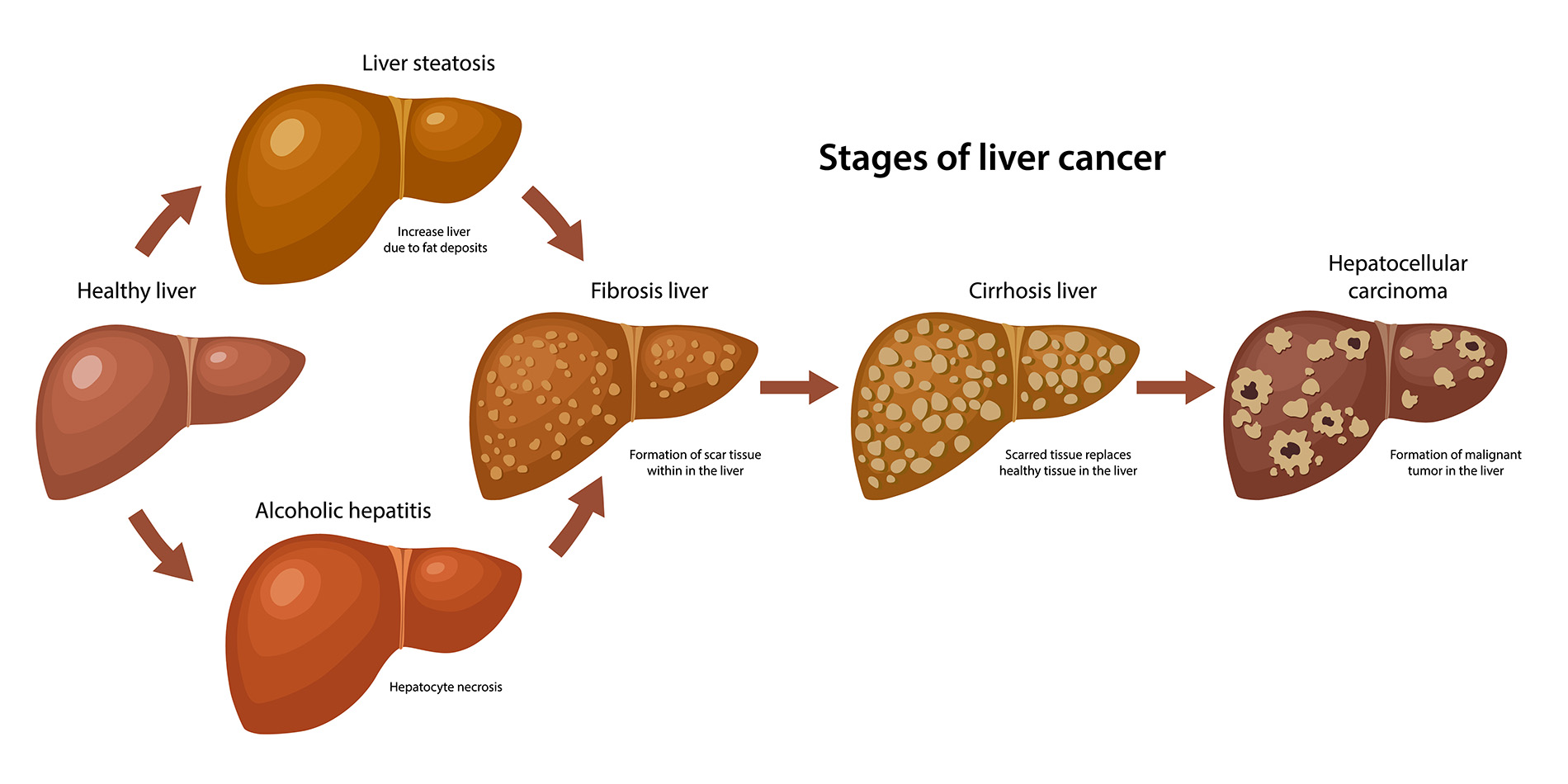When someone is diagnosed with liver cancer, the next step is for doctors to see if the cancer has spread and if so, how far. This process, called staging, helps doctors understand how much cancer is in the body, to determine how serious the cancer is, and the best way to treat it. In general, cancer stages range from Stage 0 to Stage IV. The lower the number (stage 0), the less the cancer has advanced; the higher the number (stage IV) means the cancer has progressed significantly. Although each person’s cancer journey is different, it is safe to say that most cancers with similar stages tend to have a similar outlook and thus, doctors tend to treat them similarly. However, liver cancer tends to be a little harder to treat due to the delicate nature of the tissue. Here is more about the stages of liver cancer.
Determining the Stage
The staging system that most doctors in the U.S. use for liver and all other cancers is the AJCC (American Joint Committee on Cancer) TNM staging system. This system is based on three key pieces of information: tumor size (T), whether the tumor has spread to nearby lymph nodes (N), and whether the tumor has spread or metastasized to distant sites such as other organs (M). This system uses numbers and letters after T, N, and M to provide more details about each of these factors. The higher the number, the cancer advanced the cancer.
Grouping
Once a patient’s T, N, and M categories have been determined, the doctor will combine this information into a process called stage grouping. During stage grouping, the doctor will assign an overall stage that will be determined by any number of diagnostic tests – from physical exams to imaging and lab work. There is one additional stage that can occur if the person has surgery to remove the cancer. This is called the pathologic or surgical stage and is determined by examining tissues that have been removed during the surgery.
Additional classification
While this formal staging system helps doctors determine a person’s prognosis, doctors often classify liver cancers in an even simpler manner to best treat them. For the purposes of treatment, doctors usually classify liver cancers based on whether or not they can be entirely cut out or removed surgically. These classifications include potentially resectable (removable), unresectable, inoperable with only local disease, advanced (metastatic). Let’s talk about these classifications.
- Potentially resectable: The tumor can be completely removed surgically or treated with a liver transplant. This classification includes most Stage 1 and Stage 2 cancers in the TNM system, as well as cancers that don’t have other serious medical issues or cirrhosis. Very few people who have liver cancer have this type of tumor.
- Unresectable: The cancer has not spread to the lymph nodes or distant organs but it can’t be completely removed through surgery. The cancer may have spread throughout the liver, or the tumor can’t be removed safely due to its risky location (e.g., where the liver meets main arteries, veins, or bile ducts).
- Inoperable with only local disease: The tumor is small enough and in the right place to be removed, but the patient is not healthy enough for surgery. Situations can include cirrhosis of the liver. If the tumor is removed, there may not be enough liver tissue left to function properly.
- Advanced (metastatic) cancers: The cancer has spread to the lymph nodes or other organs; in this case the cancer cannot be treated with traditional surgeries.
A Beam of LifeTM for those with Liver Cancer
For those who have been diagnosed with advanced stages of liver cancer, traditional radiation is not an option due to the sensitivity of the liver’s tissue. That’s when many patients turn to CyberKnife, an FDA-approved, non-invasive treatment option that enables radiation oncologists to deliver targeted, high doses of radiation to a broad range of cancerous and non-cancerous tumors throughout the body – including liver cancers. In fact, CyberKnife has shown great success as a non-invasive option for both primary and metastatic liver cancer treatments.
The key to success is CyberKnife’s tracking technology, which eliminates risk by continuously pinpointing and following the tumor’s exact location as the patient breathes normally while undergoing treatment. This permits up to 200 radiation beams to focus on just the tumor from all angles, leaving healthy tissue unharmed. CyberKnife is used to treat lesions in those who can not have or do not want surgery, or those whose chemotherapy treatments have been unsuccessful.
A diagnosis of liver cancer can be devastating. But don’t give up hope. Call The CyberKnife Center of Miami to see if CyberKnife is right for you. Call us today at (800) 204-0455 or reach out to us online.

